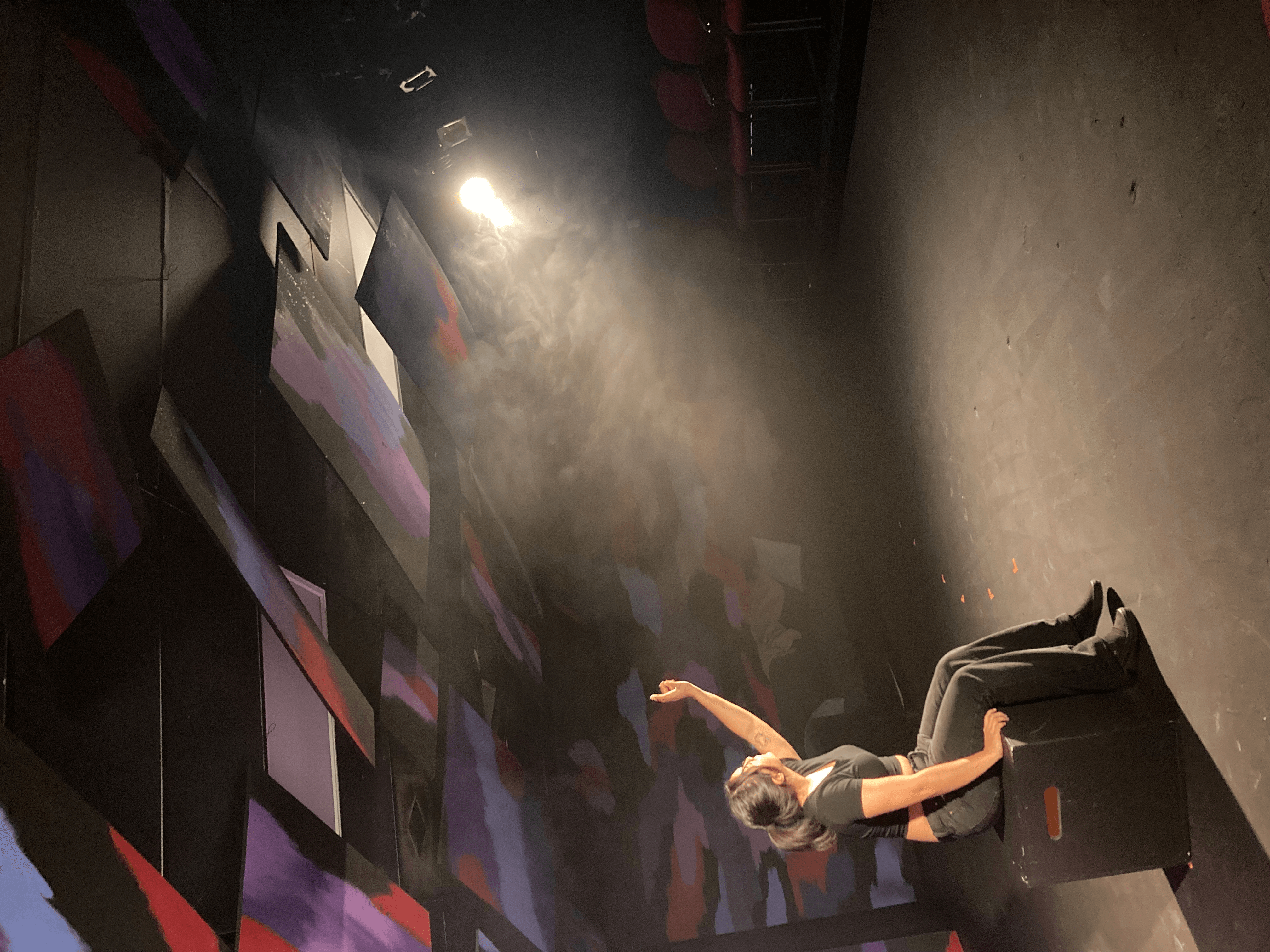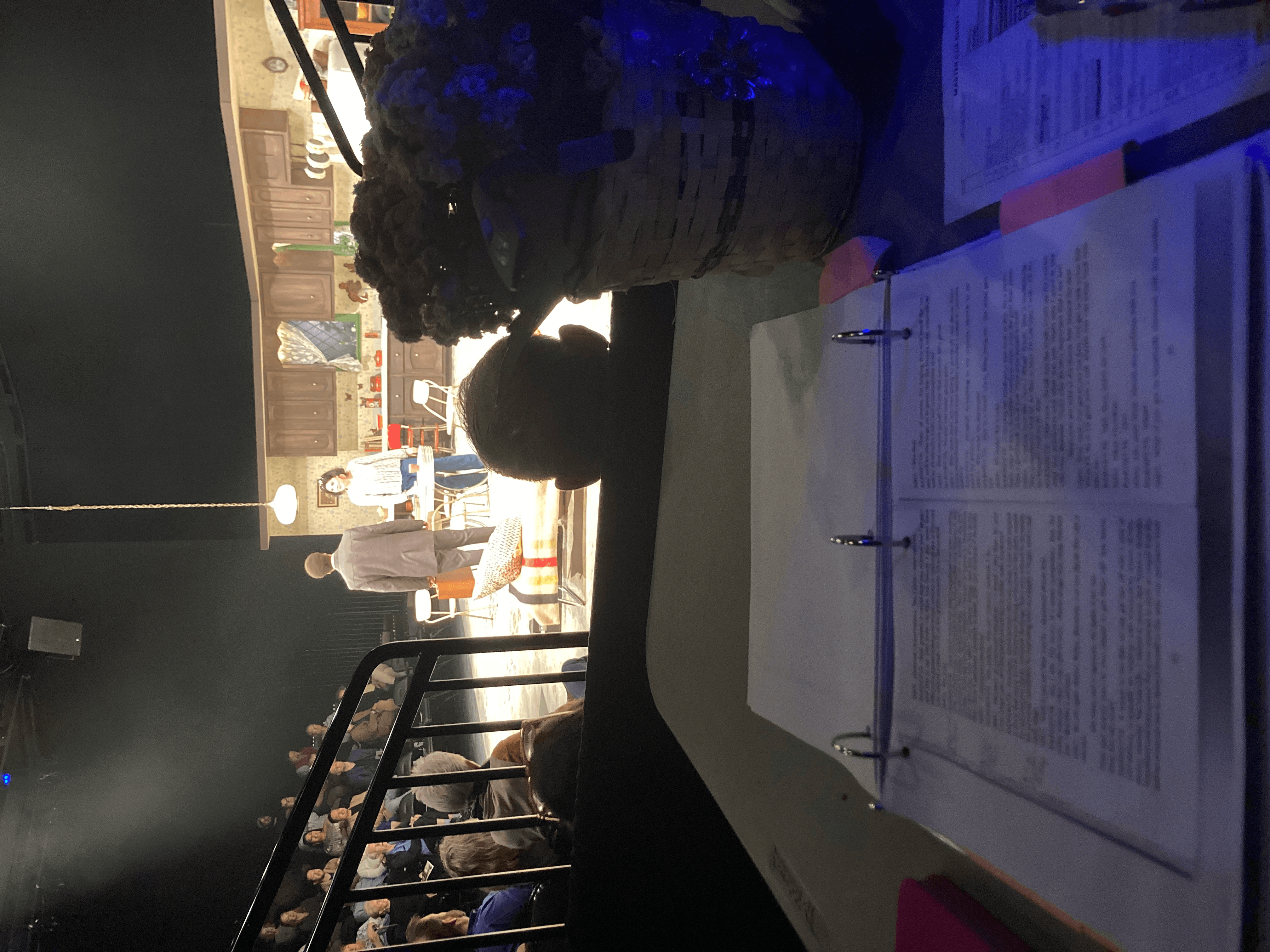We were lucky to catch up with Angie Hernandez recently and have shared our conversation below.
Angie, thanks for joining us, excited to have you contributing your stories and insights. Has your work ever been misunderstood or mischaracterized?
I started as an actor as many performing artists do. I was a performer in high school for our theater program and also participated in the marching band. In college I decided to continue pursuing theater arts while also participating in marching band and shifted from performer to stage manager. Upon my return to San Antonio, I stage managed several shows before getting the courage to audition for a show. Most of my peers viewed me as a stage manager only and never considered me a performer. I was actually cast in the first show I auditioned for and that opened up opportunities for me to stage manage and perform.
I applied for a teaching artist opportunity and had a fantastic interview and at the end the interviewer confessed to me that they saw my resume and thought “oh a stage manager, this should be a short interview, I’m not sure a stage manager would make a good teaching artist.” I remember thinking, I’m more than just a stage manager, I’m a performer, and in college I worked in the costume shop building costumes and working wardrobe, I was on a national tour and learned how to lead a tour, I worked at a children’s theater and had to learn every part of making a production come to life. I remember thinking how interesting it was that he assumed that since I mostly stage manage that I somehow lacked creativity that was needed to be a teaching artist. He ended up offering me the gig and I was a teaching artist for several years and ended up being one of their strongest teaching artists.
There was an opportunity to apply to be Artistic Director at the theater I had been involved with for over a decade and I was worried that maybe they wouldn’t take me seriously in that kind of leadership position because I had mostly stage managed. I’m happy to say they did not take my experience for granted and in fact loved my background and experience and now I’ve been their Artistic Director for almost 2 years. They have expressed that there is no misunderstanding that the growth of our theater is due to me stepping into that role and being the kind of leader that they needed.
I once shared with a friend that you can never let what other people think you should be doing hold you back. I used myself as an example. I was “just a stage manager” that started as a performer, continued to stage manage, transition into development, and am now the Artistic Director for a theater that means the world to me. Don’t let anyone every tell you you are “just” anything.


Angie, before we move on to more of these sorts of questions, can you take some time to bring our readers up to speed on you and what you do?
Theater has been my passion since I realized in college that I love being able to tell stories on stage and share in this unique human experience where we never see the same show twice and where the audiences is as much a character as the people on stage. I started as a performer in high school because it was fun and different from the band stuff I had been doing. I got to flex different creative muscles and create fun characters and tell stories.
In college I explored the backstage side of theater with stage management, wardrobe, set painting and the occasional light and sound work. I was then able to take these skills and use them to stage manage my first show in my hometown which lead me to applying to be part of a national tour for our local children’s theater. I remember applying for a tech intern position then being introduced as the company and stage manager for the tour. It was a whirlwind tour where I had to learn many things on the fly but had a blast with some of the best people driving all around the United States in a minivan and 16 foot box truck.
After some years at the children’s theater as their first Production Stage Manager, I decided to learn more about nonprofit development and spent a few years at some local nonprofits in various development roles all while continuing to stage manage and perform in shows around town. I was also fortunate enough to work in development at one of our local theaters for about a year before transitioning to healthcare philanthropy and taking on the role of Artistic Director at my home theater.
As Artistic Director, was I was tasked with putting a season together for the rest of the year, because after COVID until that point they were selecting one to two shows at a time. It was a large task but with the help of my script selection committee that I formed, I was able to successfully fill out the rest of the year and and put together a great season for the following year. I wanted the theater to have the sense of community that I had when I first started working with them and slowly I think we are getting there. I have heard many positive reviews of the current shows and glowing reviews of how much we have grown since I have been leading this organization. I strive to continue to create a safe space for my performers where all feel welcome to participate in our productions or improve or tech or wherever they want to help.
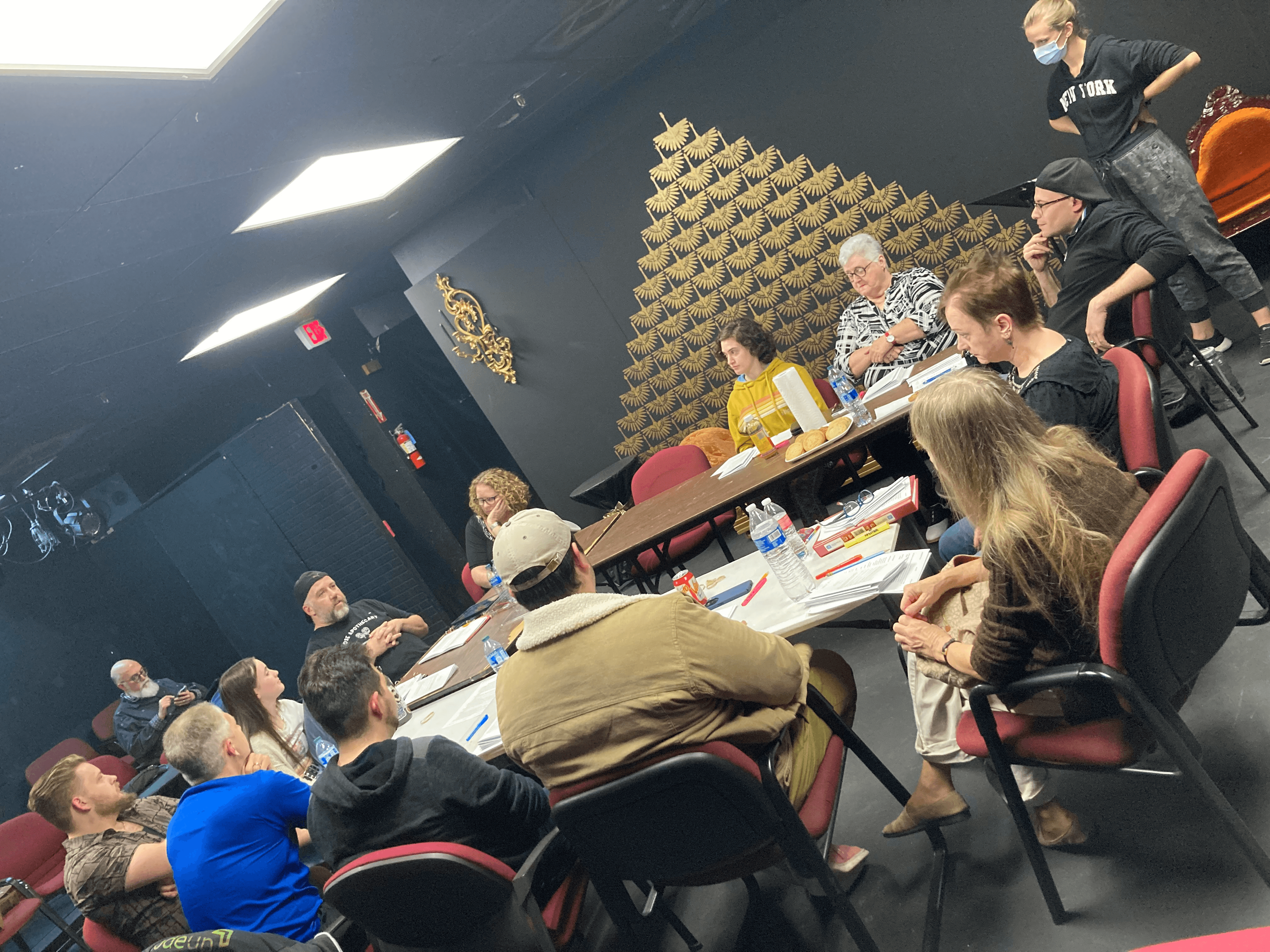
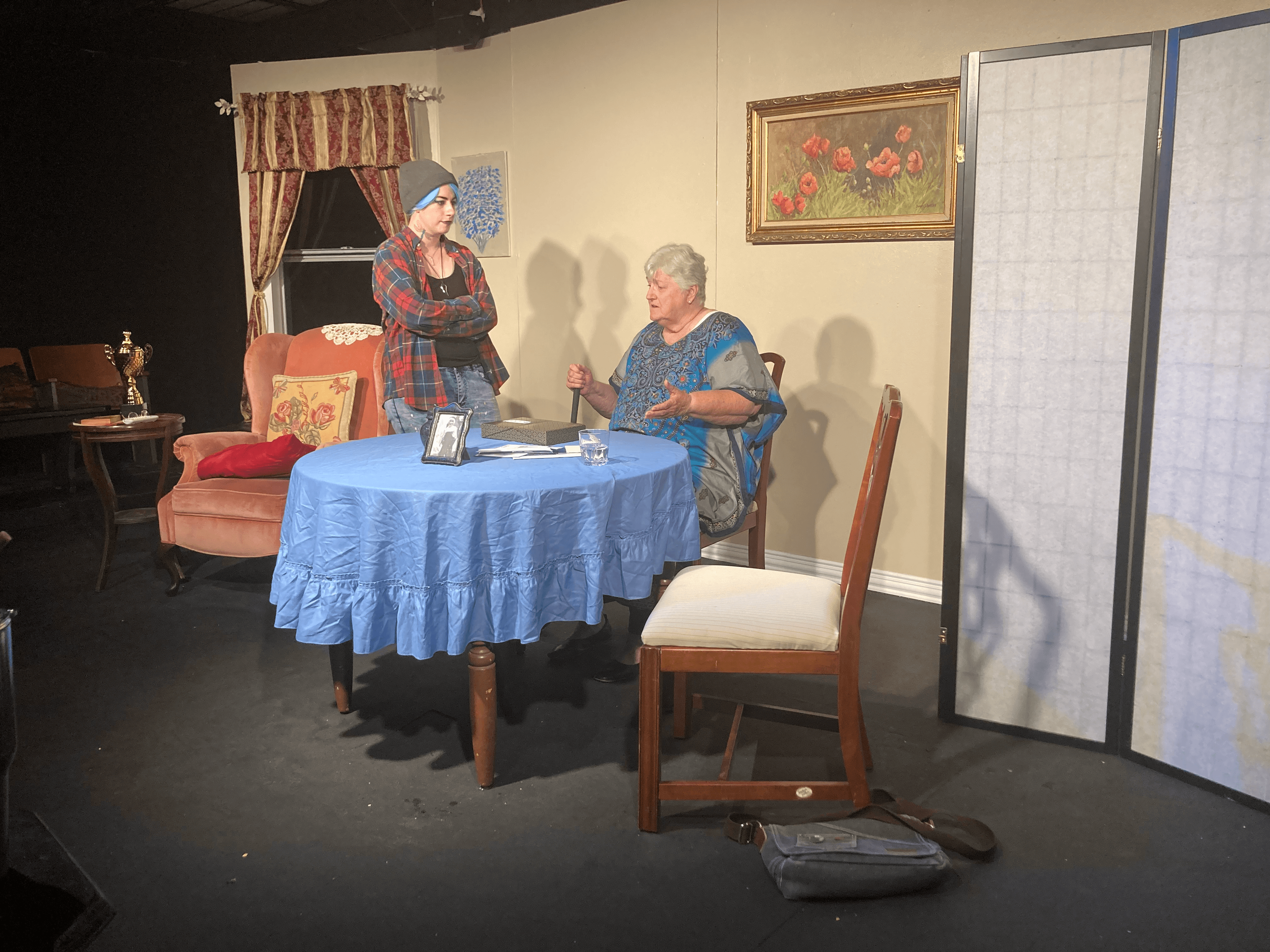
What’s the most rewarding aspect of being a creative in your experience?
The most rewarding aspect of being an artist is sharing space with our audiences and giving them space to experience a moment of magic and sometimes hearing how our stories helped them heal. I always love to hear our young audiences gasp when a moment of magic happens on stage and watch as their eyes widen at the possibilities before them. Hearing them say “I knew she was real” when seeing a princess on stage. Feeling the excitement when the protagonist is wining a battle.
I like challenging my artists to do something outside of their comfort zone and watching them grow as a result. I also like talking with them throughout the process and learning that being part of a show helped them through a difficult time. Having a cast of people that are there rooting for you even outside of the production has helps so many of us. Working with our intimacy coach and understanding how to work through difficult topics and giving the artist space to explore deeply emotional scenes safely. I love to see people grow through art and see how it expands beyond the stage into the world. How people learn to connect with the stories we share with them.
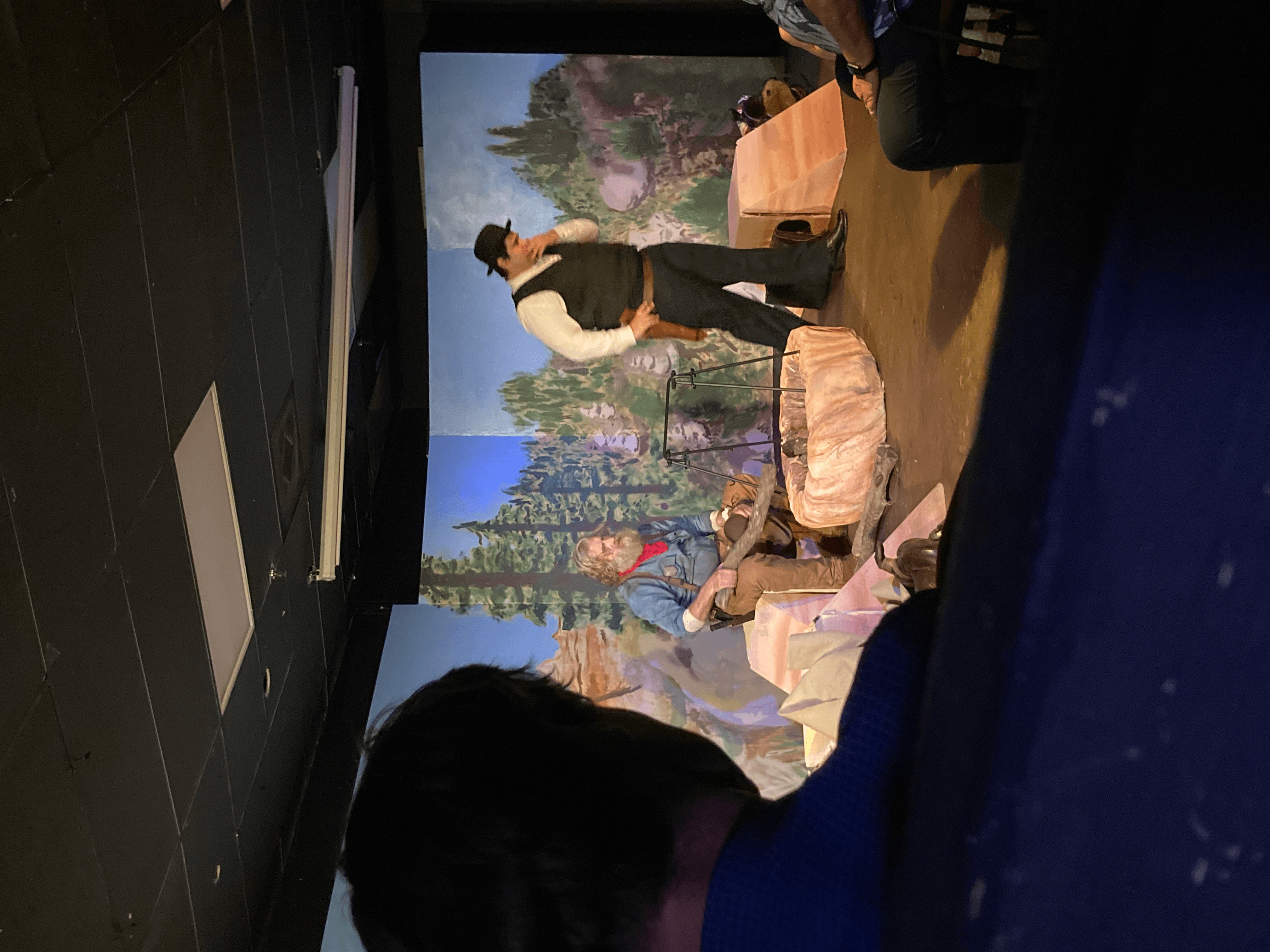
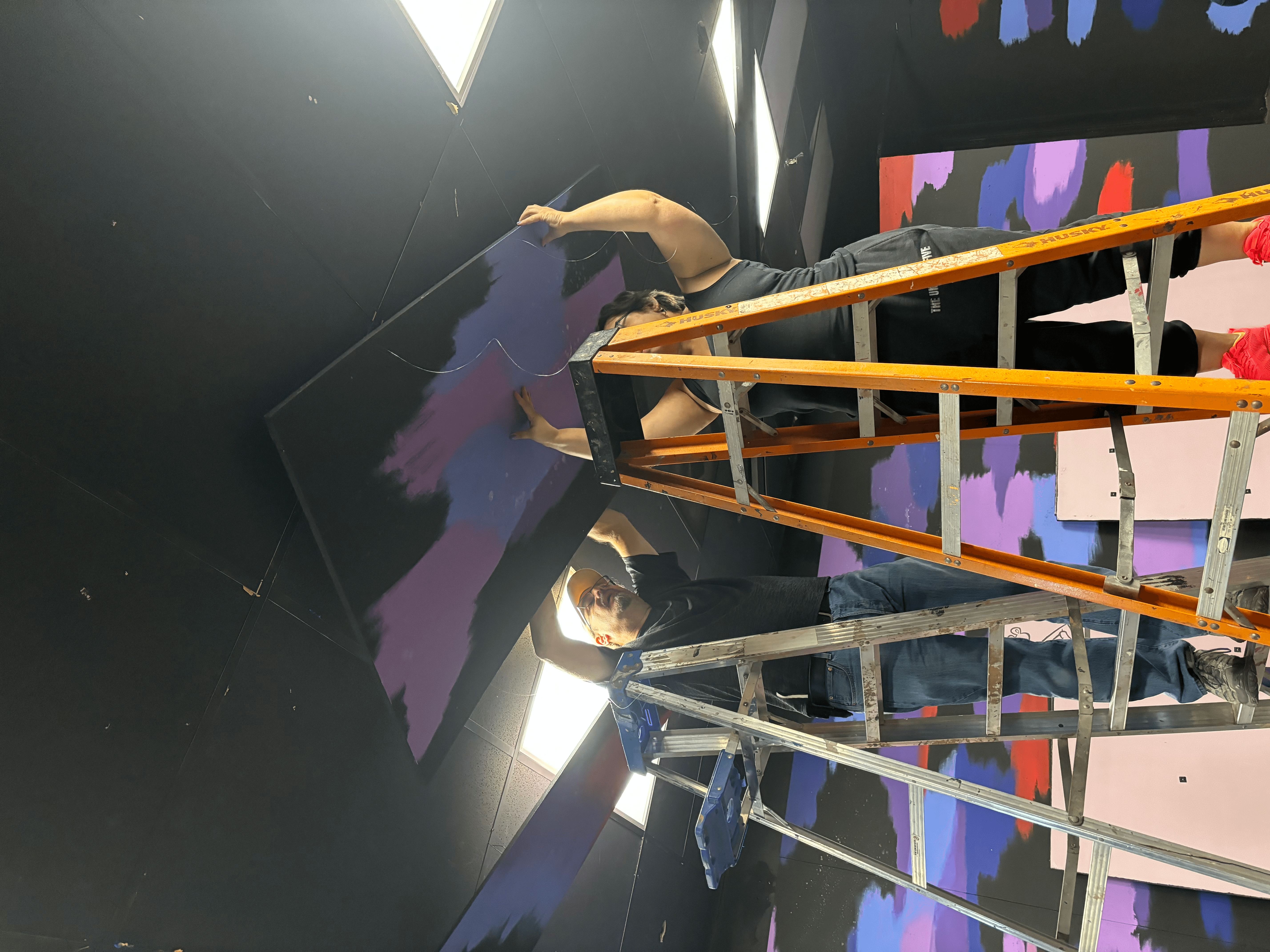
In your view, what can society to do to best support artists, creatives and a thriving creative ecosystem?
Half the battle many of our arts organizations face is lack to knowledge and support. So many times I have heard the community say “I didn’t know about that theater” “I didn’t realize we had all this here.” It is easy to overlook the community theaters when there is so much other art and music happening all around. Most of the community thinks they are supporting the arts by going to a touring Broadway production, which is a step in the right direction but they forget that those shows and artists had to start somewhere and that is where supporting community theater is important. Without a place for artists to start, they’ll rarely make it to those big shows at the big theaters everyone knows.
Support for the community theaters needs to start within the community and branch out. We need the community to know we exist and show up for the shows we are producing. We need people to share our content to help inform others of all that we have to offer. We need the artists to support each other instead of tearing ourselves down.
At our most challenging times, we turn to art whether its to escape from reality or to give ourselves something to feel. We need society to understand that art is not a luxury but a vital part of the human experience.
Contact Info:
- Website: https://theovertimetheater.org/
- Linkedin: https://www.linkedin.com/in/angie-hernandez-334298b4/
